Charles Pakana (Victorian Aboriginal News):
Several weeks ago I spoke with Wotjobaluk woman, Aunty Janine Coombs and kickstarted a series of interviews about what does reconciliation mean to Victorian traditional owners and people today. Continuing with that topic, I’m speaking with Aunty Esme Bamblett, a Bangarang, Wiradjuri and Taungurung woman, and since 2008 CEO of the Aborigines Advancement League, member of the First Peoples’ Assembly of Victoria and an almost endless number of honors and various community activities. Aunty Esme, thank you so much indeed for taking the time to talk with me today.
Aunty Esme Bamblett:
Thank you for having me, Charles.
Charles:
Let’s get right into it, Aunty Esme. To you, what does reconciliation mean to you? And we’ll look at the actual definition from Reconciliation Australia later, but ask that one question, what does it mean to you?
Aunty Esme:
Well, personally, it means that Australia will come to a place where they know the history of this country, that there is truth telling and that they understand all the things that happened to our people and they come to a place where they’re prepared to repair the damage that has been done by their ancestors. And to make sure that our mobs have justice and equality of service delivery and that they have generational wealth, the ability to have generational wealth for their generation’s ongoing.
Charles:
You’re talking just in that very short response then about a multitude of things, you really alluded to truth telling. You are alluding to equality, but only achieving equality by gaining equity in order to achieve that as well. That’s fairly broad, but do you believe that reconciliation can lead to a better Australia for all Australians regardless of their ancestry?
Aunty Esme:
I definitely think it’s a very important thing for every single Australian. It’s not really just about us, it’s about everybody. It reminds me of the biblical notion of reconciliation, that Jesus was the reconciliation between God and man. But Jesus hadn’t done anything, man had. God was really reaching out, really would be mercy would be the word. He was reaching out in mercy. Well, our mob did not do anything either. And so the things that happened to our mob were done to us. It’s really a grace on our part to even come to a table for reconciliation considering we didn’t do it.
Charles:
How do you react then to, it’s a question that you and I spoke about just a couple of minutes ago before we pressed record button right now. But how do you react to the question that so many Aboriginal people are asked? And that is why don’t you simply get over what’s happened in the past? And it’s okay, listeners, Aunty Esme and I are smiling at each other. She’s aware this question was coming. And just become Australians. How do you respond to that?
Aunty Esme:
That’s the importance of reconciliation. The importance of reconciliation is that you get to a place where people understand the trauma, the hurt, the ongoing generational trauma that has occurred with a lot of our mob. People understand that that’s reconciliation. And then you can get to the place where you say, as Charles Perkins said, even though we don’t live in the past, past lives with us. But you’ll get to the place where the past won’t hurt as much. The past hurts. If there’s unreconciled differences, that hurts. That trauma is exacerbated by the fact that it’s unreconciled and that’s why reconciliation is so important. And once it’s with all Australians, once all Australians understand that, then we can come to a place where we can sit down and we can be together as all Australians. Don’t get me wrong, Aboriginal people still have loyalty to this country. It’s our country.
Charles:
Of course.
Aunty Esme:
And when it comes to international affairs, we’re very loyal to our own country. But at the same time, there has to be differences reconciled within this country and people have to admit what happened. And people have to start to be a bit more understanding that the trauma that has occurred to our people is not just something that you can wave a magic wand and get over because it’s there. It’s lived.
Every day stolen generations in this country are living the trauma of being taken off their family. Now, someone asked me in ACAT session, how do you keep the trauma going? Why is there trauma? Why is it there? We don’t do that deliberately, but if you know how much your mother is hurting from her past and what’s happened, you see that. She doesn’t have to tell you every day, “Oh, I’m hurt from my past.” She lives the hurt. And you can see the hurt and the trauma and you can hear the injustice, all the things that have happened.
And the problem is, Charles, it continues. The Black deaths in custody continue and they hurt. It hurts that someone goes in for next to nothing into jail and is dead. That hurts. And the way people are treated in incarceration is terrible for our mob. That hurts. While it continues, we’re not going to get over it.
Charles:
What part do you think Yoorrook is playing achieve this understanding with the greater community?
Aunty Esme:
I think Yoorrook is one of the greatest things we’ve ever done. I think that the truth, there are people, but the problem there is a problem, firstly I’ll say about how good it is. Yoorrook has made people accountable, government accountable for what’s happened and tell the truth. For the first time ever in this country, there is actually a process where you’ve got to tell the truth and they have been telling the truth. Yoorrook has made everyone accountable. there’s a truth-telling process and it’s not in the storybooks, it’s people telling their stories. I like to listen to people. I love reading too, by the way.
Charles:
We know that.
Aunty Esme:
But listening to people’s really amazing, you listen to their story. And every time I listen to someone’s story, it enhances me, enhances who I am, and I get something out of every single person. I like listening to stories, but it’s also so it’s listening to our mob tell their stories. That’s the good part. And then governments come in and they have to be accountable. They have to tell the truth. This is what we have done, this is where we’ve let people down.
Charles:
But what about the rest of community, Aunt? That’s the big thing.
Aunty Esme:
But this is the problem. The problem is it’s not promoted enough in the wider community. If the wider community had to listen to even a couple of stories, I reckon it’d be better because they’d understand.
Charles:
But you are really leading then towards the education system.
Aunty Esme:
That’s right.
Charles:
Because people of our age forget it, a lot of them just aren’t going to listen. But if we get them young, if they are told the real history, not the whitewashed history, surely that’s got to speak volumes for the future of reconciliation in this country.
Aunty Esme:
And I think that’s why we’ve got a lot of young people today who are fantastic and they are very much about sharing. They’re very much about missions, about the past and everything. They are great people because they’ve been taught something. When we were at school, we were taught nothing. I was taught that Captain Cook discovered Australia. I thought that was true. Right.
It wasn’t until I really went to university that I started to really think about it outside the box that I’d been taught in. It was a little primitive, Aboriginal box, rolls of men and women, tribals, all the stuff they taught that was in this little box, there was nothing about the real history. Today there’s more about it, not enough, but there’s more. The schools do have to teach about our people.
The problem is that if you’ve got a teacher who doesn’t know anything, they don’t know how to start, they don’t know where to start. And they have to be careful because people get really offended about the truth. And I was listening to this school in Sydney that had put the stuff, this young fella about how he would spear Captain Cook. And they put it over the radio and people went mad, the parents.
Charles:
Wouldn’t have gone over well, would it?
Aunty Esme:
It did not because the whole school heard it. Right. And it did not go over well because they said it wasn’t good for the younger ones. All that sort of stuff. The truth hurts people. And until it stops hurting, that’s when we have reconciliation. It’s got to stop hurting.
Charles:
You’ve been involved with the First Peoples’ Assembly of Victoria since, what, November 2019 when you were first elected.
Aunty Esme:
Is it that long?
Charles:
It’s coming in on five years, Aunt. I’m not asking you to comment deeply on treaty, but do you see that treaty and the potential for a statewide treaty is going to contribute to this greater understanding beyond just government and Aboriginal people?
Aunty Esme:
Do you want to honest answer? No. I think the short answer is yes.
Charles:
The long answer?
Aunty Esme:
I think there are a lot of people who don’t understand treaty, it’s the wider community and they’re going to kick up about it because they don’t understand what it is. And they either don’t know the truth or they’re not admitting the truth of what happened. I think that the treaty is amazing for us. For me in particular, it’s another step. It’s another step to justice and it could be a great step. If all of our allies and everyone in Victoria got behind it, it would be a great step. It’s not be-all, end-all of everything, but it gives us another step towards what we’re really after. We don’t want to be treated as special or different. We want to have the same rights as everybody else. And the reason we’re still protesting is because we haven’t got them.
Charles:
Well, you’re talking equality there. But as we’ve mentioned before, in order to achieve equality, there’s got to be that equity. There’s got to be that assurance that there are resources available to those who need the resources so we can achieve an equal society.
Aunty Esme:
You said that so well and that is true.
Charles:
And this do you believe is what treaty can work towards?
Aunty Esme:
What treaty will work towards is a recognition and an admission that there was something, that there needs to be an agreement, which is what a treaty is between Aboriginal and non-Aboriginal Australia. And it just so happens that Victoria has it. And I pay tribute to all the leaders that fought for that. The recognition that there needs to be an agreement after an agreement, generally reconciliation and treaty come after a fight. Now that fight is still going.
Charles:
This is the Makarrata you’re talking about because that Makarrata is coming together after conflict.
Aunty Esme:
Yes, yes. That’s what it is.
Charles:
The fight is still going. Where are the main efforts of the fight? What are the main battles being fought do you believe?
Aunty Esme:
I think now it’s in the systems. I think it’s in the systems.
Charles:
This is the entrenched government-based systems?
Aunty Esme:
Yeah. The systems have been set up by non-Aboriginal people for non-Aboriginal people. Now the voice to parliament was asked changing the systems so that our voice was in there. A treaty is the same thing in a lot of ways. It’s us having a say over the systems that operate for our people, the policies and programs for our mob. That’s what it’s about. Treaty can give us that, but it’s more than that. A treaty has to also have reparation. It does.
Charles:
Sure.
Aunty Esme:
Otherwise, it’s not a treaty. They have to admit that there’s all the stuff that happened and this is what we’re going to do to fix some of it up. We can’t ever go back. You can’t go to the past and say, “Sail away, ship, Captain Cook. Keep going, go past Australia.” We can’t do that. But what you can do is say we understand what happened. We’re at a place now where we’re trying to get a good relationship that’s ongoing. We understand that the statistics are so bad that we have to do something about them. What do we do in a treaty that changes that? That’s where we’re really at the place. What will we negotiate in a treaty that will give us long-lasting change that will be for seven generations time, not for us now. As well as us, but not only for us, but in seven generations they’re going to look back and say, “The treaty that they did in Victoria was the best treaty going and it continues for generations.”
Charles:
Do you think that the work that’s being done here in Victoria, and we’ll put it all under the big, all-encompassing term of reconciliation. A lot of people won’t appreciate me using that, but we’re just going to umbrella term it regardless. When it comes to treaty, your justice reconciliation as a whole, do you think that this is really leading the way across Australia? Because of course we’re now aware that Senator Jana Stewart is heading up the joint select committee in the Federal Parliament to look at a Truth and Justice commission at a federal level. I don’t believe personally that would’ve happened if we hadn’t had that massive progress with Yoorrook down here. Do you think that we are doing enough or are we doing well enough here in Victoria to really be inspiring the rest of the country?
Aunty Esme:
I think we are. I think we’re inspiring the rest of the country and I think we’re inspiring other countries in the world. They’re looking at us and they’re saying, “If they can do it, we can do it.” All I can say to all our mobs, and you know what, I’m not just working for here. I’m not doing what I do just for Victoria. The Aborigines Advancement League didn’t start just for Victoria. It started to lobby for WA mob. I’m concerned about our mobs all over this country. And so what we do in Victoria, I’m hoping that anything we do in Victoria can be used in other states.
Now I know they’re getting a couple of things. South Australia and Queensland have got stuff happening, but that wouldn’t have happened without Victoria. I don’t believe that without Victoria’s treaty process and Yoorrook and all the things we’re doing, I don’t believe would happen in other states. We are leading the way and we always have through our great leaders that have battled and battled on a national scene. I think that what we’re doing in Victoria is a blueprint for the rest of Australia.
And when you have a blueprint, you can always improve on it too. There might be things that we don’t get that we should have got, but other people can say, “Well, we need to go for that.” Or they need, “Oh, we might make mistakes.” We’ve looked at other treaties, for example, in other countries and said, “We don’t want to go and get treaties that where there’ve been mistakes made on either side.” We want to use those treaty that those examples to make it better for us. And that’s what I think other states can do. They can use our example and make it better and it make a better Australia.
Charles:
Because we’re always looking to change what we’re doing here. The leaders of the First Peoples’ Assembly of Victoria when it was Marcus and Aunty Geraldine and now that it’s Rueben and Djaran have always said, “Look, the first treaty we get in place will be the starting point. It’ll be refined over time.”
I said at the beginning of the interview that we’d come back to the definition from Reconciliation Australia on reconciliation is. And it’s essentially the strengthening of relationships between Aboriginal and Torres Strait Islanders and non-Indigenous Australians for a better Australia. Now, there’s nothing in that definition which talks to apportioning blame to anybody or reparations or whatever, but just that strengthening of relationships. What do you say to that definition from Reconciliation Australia?
Aunty Esme:
I like the first vision of reconciliation, a united Australia that values Aboriginal and Torres Strait Islander culture and provides justice and equity for all. I think that says better than that. There’s a lot of assumptions behind those words and you can use those assumptions, but it’s really a blanket approach instead of really tackling the issues. And I think that Reconciliation Australia has to define social justice, has to say something about everybody getting equitable treatment. Not equal because equitable means more than equal, but I’ll take your example. Yes.
Charles:
What we spoke about before. Yeah.
Aunty Esme:
Equity, that we all have the same advantages as everybody else. Not exactly in the same way because we’re all different people and that’s the truth but it’s got to provide justice and equity for all. That’s what reconciliation. We won’t reconcile if we don’t get anything.
Charles:
Sure.
Aunty Esme:
We’re not going to reconcile. We’re not going to reconcile if we don’t get reparation. We’ve given a bit of reparation to stolen generation, minimal amount of money.
Charles:
I was going to say minimal, absolutely.
Aunty Esme:
Minimal amount of money to stolen generations. That does not make up for what happened to them in no way, shape, or form. But they’ve at least got something. After all these years, the ones who are still alive got something. Right.
Charles:
There’s a recognition as well as the financial one.
Aunty Esme:
Yeah, yeah. But I think there’s more to it. There’s more. And I don’t know how Australia can make up for what happened, to be honest.
Charles:
Well, let me ask you this, Aunt, and that is that a lot of Aboriginal people will say, “Reconciliation is not up to me. It is up to the non-Aboriginal and the non-Indigenous people to reconcile.” Because as you mentioned before, as Aboriginal people prior to colonization, we’d done nothing wrong to use your words. But it seems that more and more that Aboriginal and Torres Strait Islander, people are picking up the mantle of reconciliation and they’re working to achieve that. Do you believe that, for example, the Aborigines Advancement League has a role to play in reconciliation? And it may be just educating general community.
Aunty Esme:
I think we all do. It doesn’t matter who started the argument, it matters who finishes it. We need to come together. There was something happened that was bad, but now we’re saying we all interested in the welfare of Australians from now on. Aren’t we? Want all of our mobs to achieve. Every Australian has got a part to play in justice for all Australians. I’ll give you this example of a family. If someone in your family’s hurting, it hurts the whole family.
Charles:
Of course.
Aunty Esme:
If we’ve got this mob and our mob are really at the bottom, they really are. There’s some that are doing okay. Uncle Alf used to say, “A third of our mob are in dire straits. A third, a third of our mob are in dire straits.” If a third of our mob are in dire straits, what’s going to happen? They’re going to impact on everybody. They’ve got families out there. Those families are going to be hurting, because they’re hurting.
Every single Australian needs to understand that the better we are at reconciling with everyone, the better we are at looking after each other, the better off we all are. And that’s the truth. That’s what reconciliation is. And I’m interested in being one of those people who do work towards reconciliation. Then people say, this is another thing they always say, “We didn’t do it. We didn’t do it.”
Listen, you didn’t do it. But if you don’t fix it up, if you don’t do something about it, if you don’t make a difference now you are contributing to it. In the long run, you are just as much to blame as your ancestors if you continue to ignore the plight of Aboriginal people in this country, if you continue to look at those social justice outcomes and say, “Oh, that’s their mob. They’re doing it to themselves.” You continue to do that, you are continuing to be the conveyor of injustice that happened. It’s up to every single one of us to stop it. To start looking around and seeing in our big family of Australia who’s hurting and why, and what can we do to help them.
Charles:
Aunty Esme Bamblett, thank you so much indeed for your time and your thoughts.
Aunty Esme:
Thank you, Charles, for interviewing me.


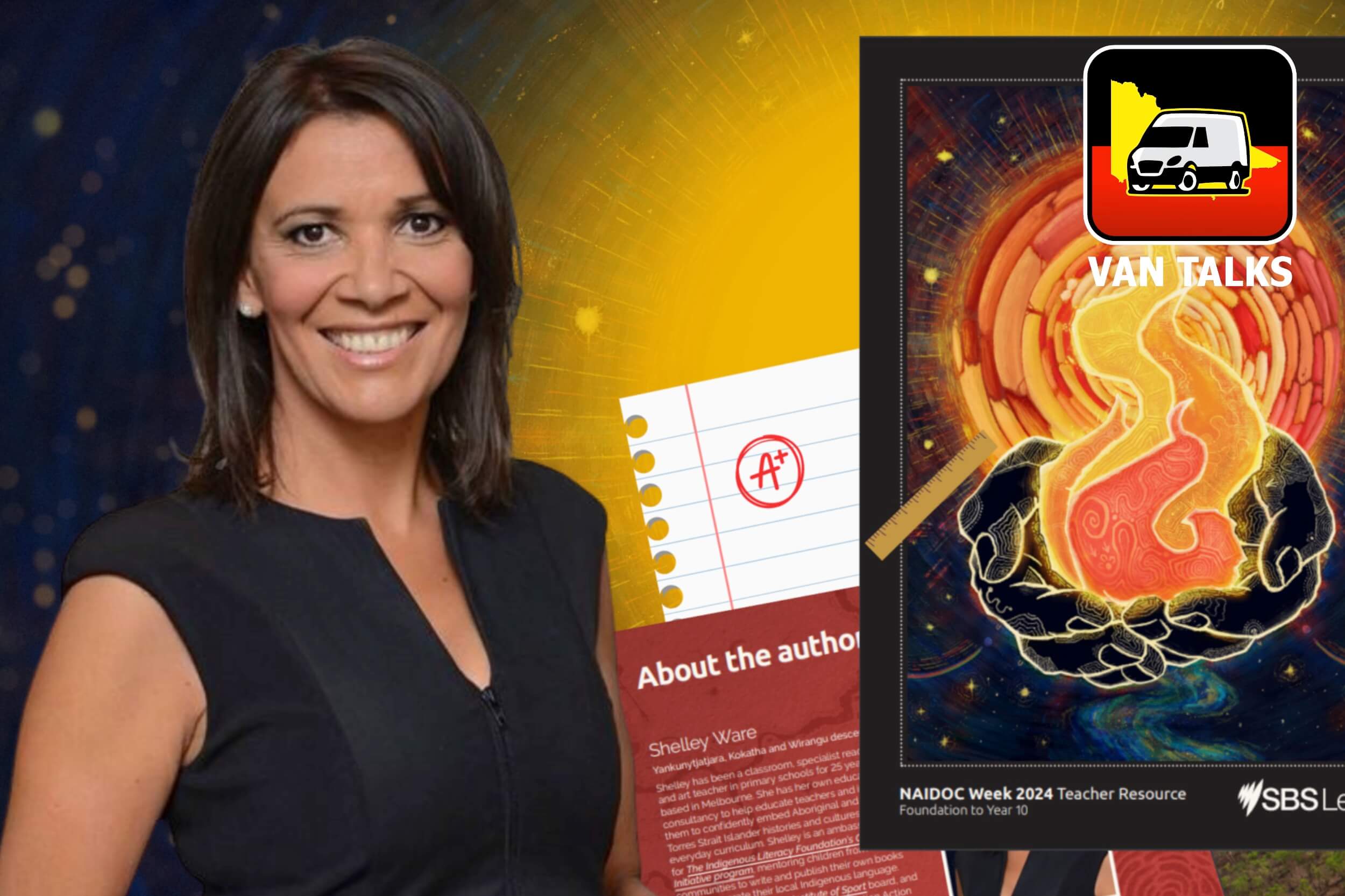
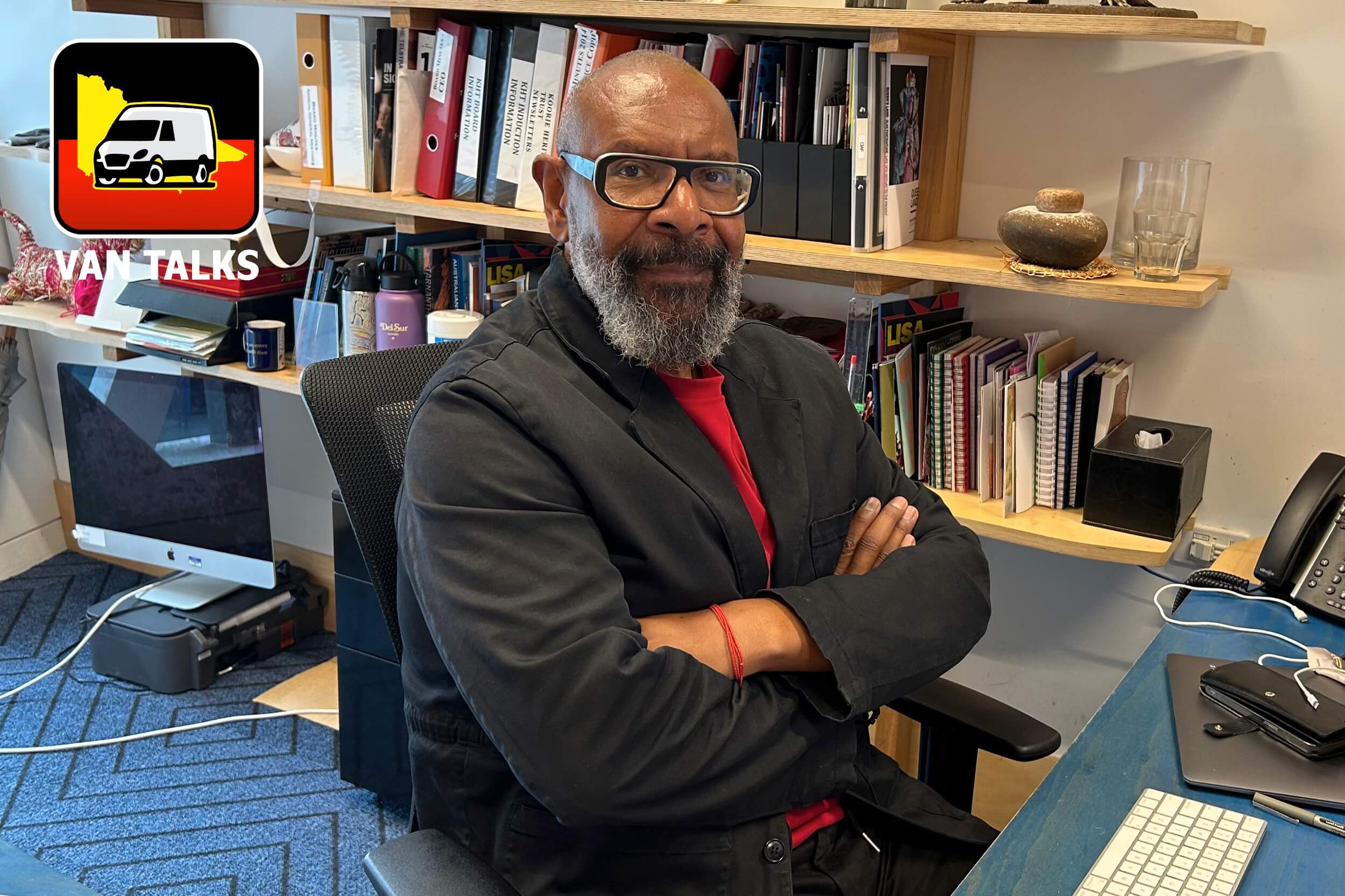
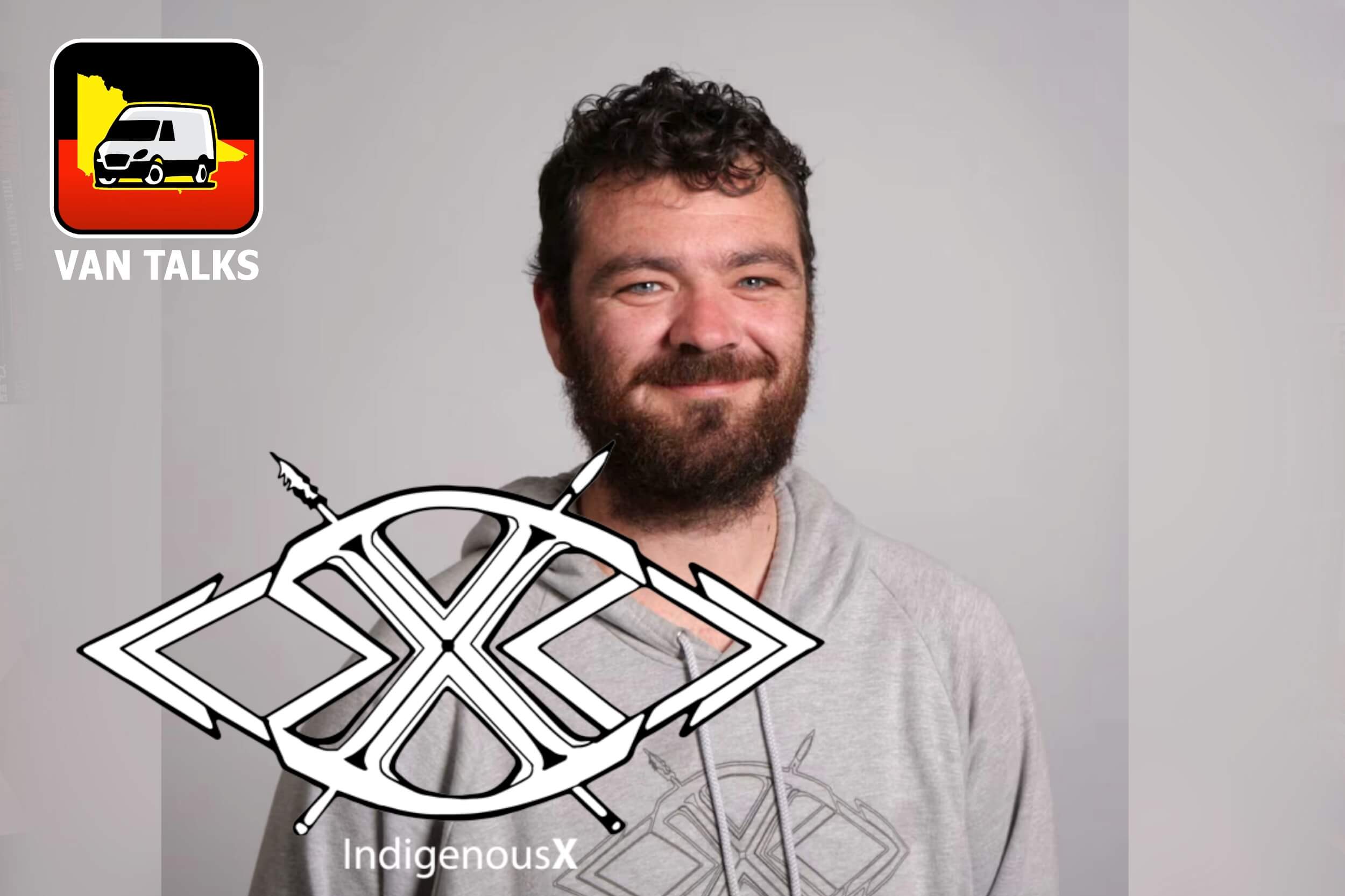
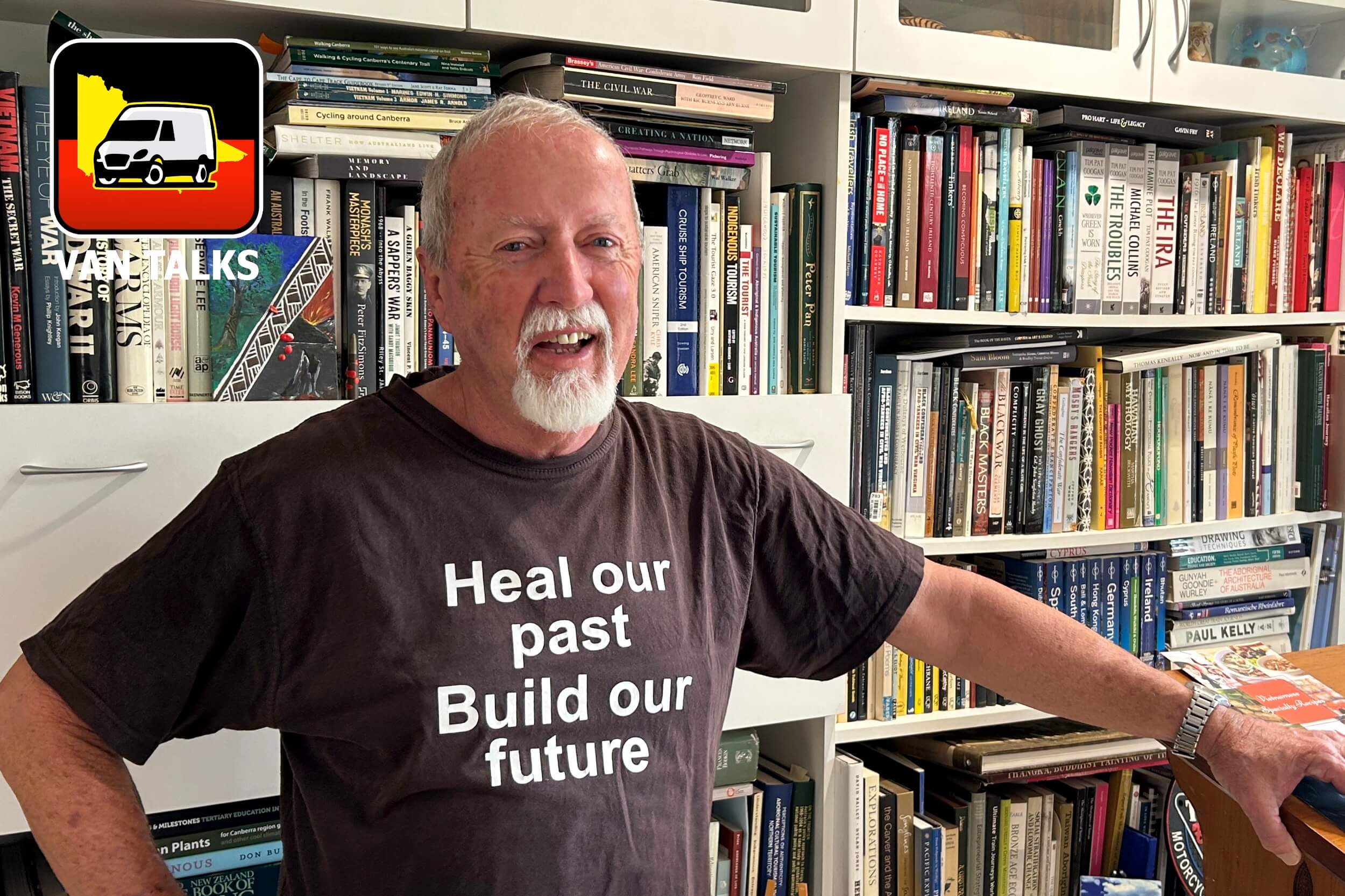
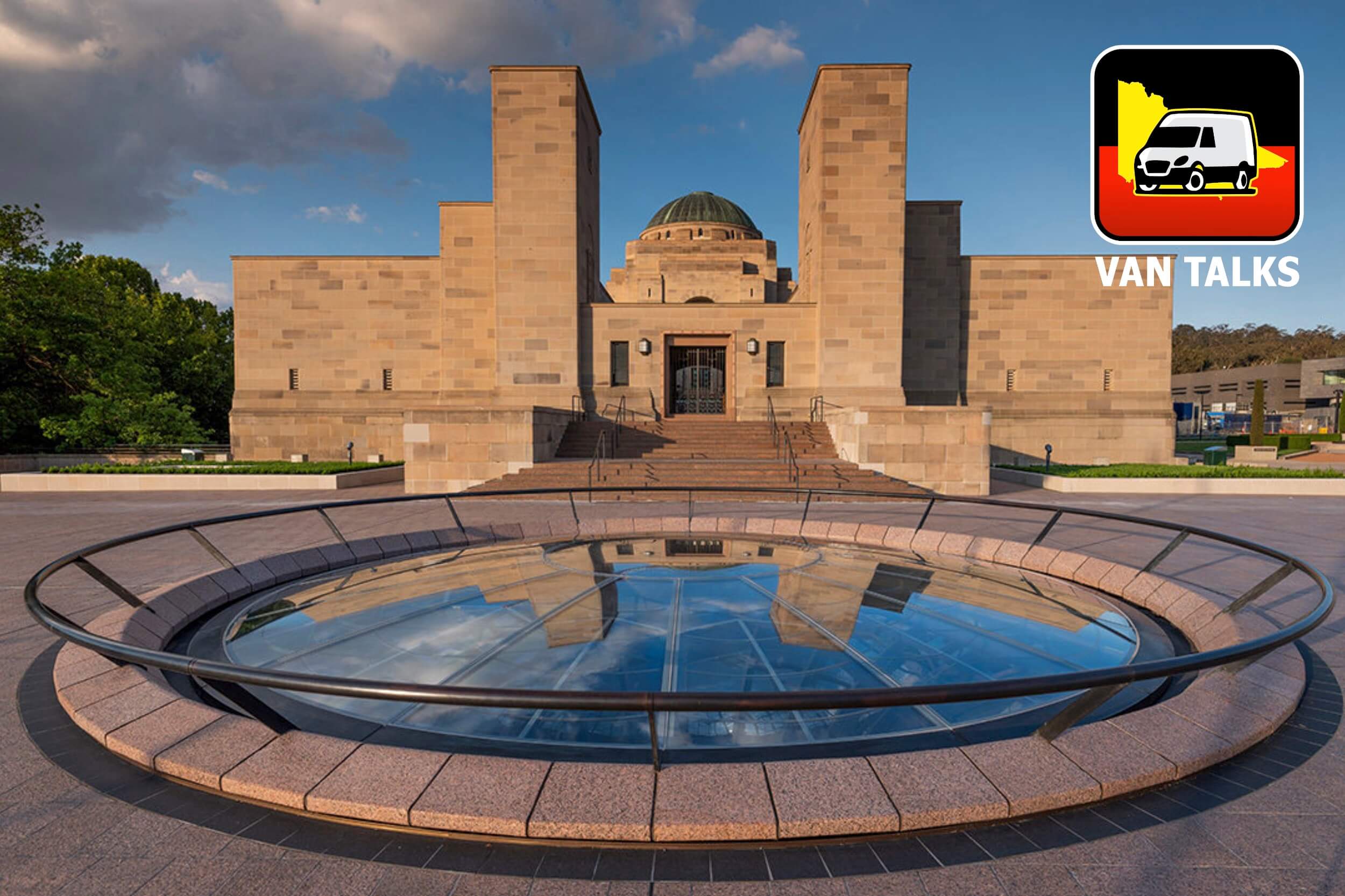

Excellent work